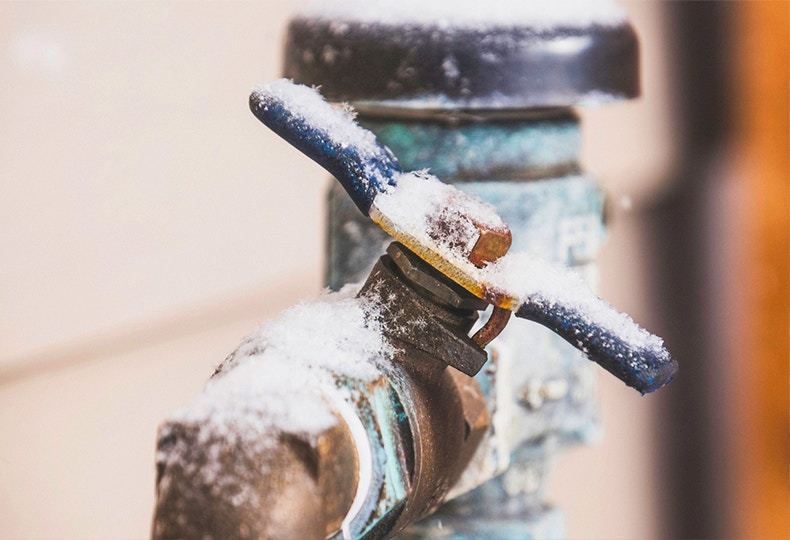I am a Nebraska girl. Cold winters are in my blood. My roommate, however, grew up on the beach. This year, before we both left for the holidays I asked if she would turn the thermostat down – thinking she would put it at 60 and we’d save a few bucks on our electric bill. Nope, she turned the heat OFF, for an ENTIRE WEEK. Apparently, that is what you do if you are from the beach and you’re used to a mild climate. I didn’t know that this had happened until I got a text from her that said she had returned from Christmas and our house was a balmy 25 degrees. The first question I asked her, “did our pipes burst?”
Thankfully, our pipes were well insulated and we avoided a potentially disastrous situation. Here are a few ways you can keep your pipes from freezing when the temperatures drop.
Tips to Keep Your Pipes From Freezing
1. Insulate the pipes in your home.
Pipes that are the most at risk are those in unheated interior spaces, like basements, attics, and garages. Property damage from bursting frozen pipes can easily exceed $5,000, and yet the cost per linear foot of insulation is just $0.50.
2. Keep your thermostat consistent.
The potential water damage is not worth the savings on your utilities. Ask me how I know.
3. Open kitchen and bathroom cabinets
You might already know this, but be sure to allow the heat in your home to heat around the pipes going to your kitchen and bathroom sinks.
4. Keep a slow drip of cold water from the faucet.
Even a small trickle of cold water can be enough to keep your pipes from freezing.
5. Automated Water Shut-off Valves and Leak Detectors
With automation devices, leak detectors can sense a burst pipe and the automated water shut-off valve can close the main water line to your home to mitigate water damage from a frozen pipe. Did you know our ADS Aniware app will automatically turn off your water valve when a leak is detected? These water sensors can also be useful when you go on vacation and for rental properties.
Side note: Houses in southern climates are traditionally built with the pipes outside of the building insulation because the odds of consistently freezing temperatures are lower – so when it does get cold they are more susceptible to frozen pipes.
For more on Frozen Pipes view the PDF by the Insurance Institute for Business & Home Safety.
Categories: Family, Safety Tips


